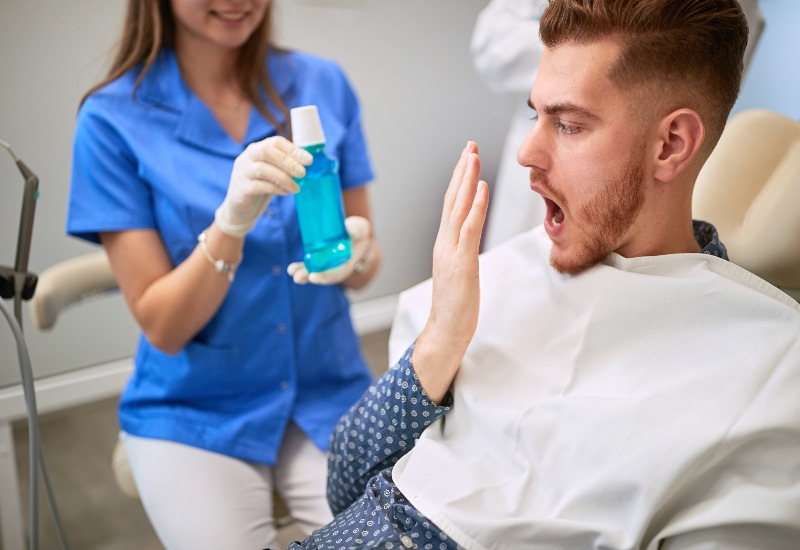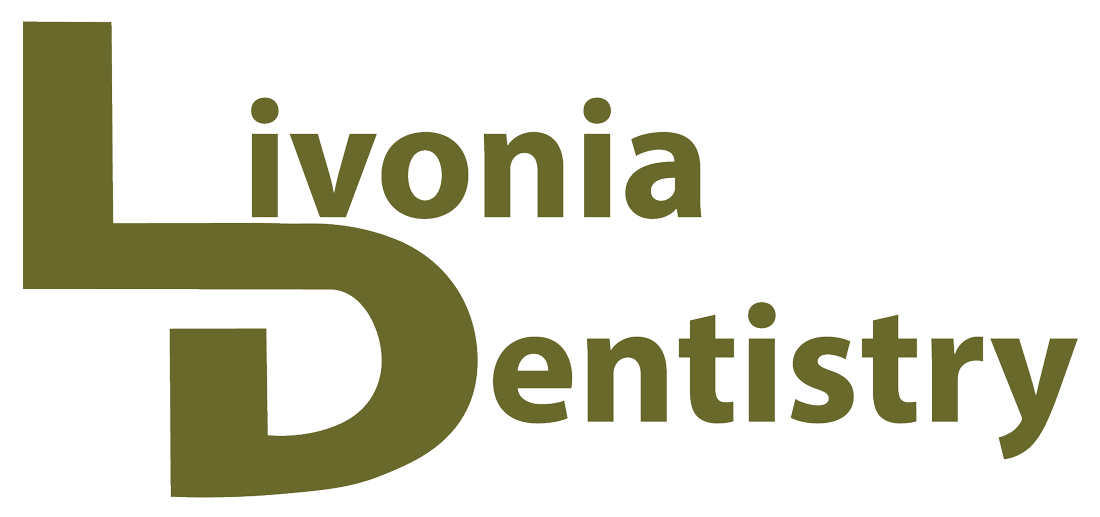Understanding the Causes of Bad Breath and Ways to Prevent It
What Causes Bad Breath and How to Prevent It
Have you ever woken up in the morning asking, “why does my breath smell so bad?” You’re certainly not the only one. Bad breath, or halitosis, affects countless people in the United States and beyond. While everyone experiences occasional bad breath, persistent symptoms could be a sign of an underlying health problem. With this in mind, let’s take a deep dive into halitosis and ways of preventing bad breath in the long run.

What Causes Bad Breath?
The most frequent cause of bad breath is the buildup of bacteria in the mouth. These bacteria break down food particles, dead cells, and other debris, releasing smelly compounds responsible for the unpleasant odor. But what causes these bacteria? Learn more about the main causes of bad breath:
Poor Oral Hygiene
This is the number one reason for bad breath. If you don’t brush and floss your teeth daily, food particles get trapped in your mouth. This creates a breeding ground for odor-causing bacteria. These bacteria often collect on your tongue, between your teeth, and along the gumline. A sticky, colorless film of bacteria called plaque can also form on your teeth, which can irritate your gums and eventually lead to more serious issues like gum disease.
Certain Foods and Drinks
What you eat and drink has a direct impact on the freshness of your breath. Foods like garlic, onions, and certain spices contain pungent oils that enter your bloodstream after digestion. These oils are then carried to your lungs and exhaled, causing a noticeable odor that can linger for hours, even after brushing.
Tobacco Products
Smoking and chewing tobacco are notorious for causing bad breath. Tobacco products leave their own distinct, unpleasant smell in your mouth. They also dry out your mouth, which reduces saliva flow and allows odor-causing bacteria to multiply.
Dry Mouth
Saliva is more important than you might think to your overall oral health. It helps neutralize acids produced by plaque and washes away food particles and dead cells. When your mouth doesn’t produce enough saliva, bacteria can flourish. Dry mouth might stem from any number of reasons, including salivary gland problems, mouth breathing, and certain medication side effects.

Medical Conditions
Persistent bad breath might be a symptom of an underlying health issue. Some conditions that can cause halitosis include:
- Gum Disease—An infection of the gums can create deep pockets in the mouth where odor-causing bacteria might accumulate.
- Sinus, Mouth, or Throat Infections—Postnasal drip from sinus infections or tonsillitis can lead to bad breath without prompt treatment.
- Metabolic Disorders—Conditions like diabetes can cause a distinct fruity breath odor, while kidney or liver failure can result in a fishy or ammonia-like smell.
- Gastrointestinal Issues—Acid reflux and other digestive problems can sometimes cause bad breath when stomach acids or undigested food regurgitate.
Signs of Chronic Bad Breath
We all have bad breath once in a while, so how do you tell the difference between a temporary case and a chronic issue? The answer is persistence. If the odor doesn’t go away, even after you brush, floss, and use mouthwash, you might benefit from chronic bad breath remedies. Other signs of an ongoing problem include:
- A constant bad taste in your mouth
- White or yellow coatings on the tongue
- Social signs, like others frequently stepping away when you speak
How to Kill Bacteria in the Mouth
If you want to manage chronic bad breath, your best bet is to cut down on odor-causing bacteria in the mouth. In most cases, a consistent oral hygiene routine is the best way to combat the issue. Be sure to:
- Brush twice a day for at least two minutes, and use a soft-bristled toothbrush and fluoride toothpaste. Don’t forget the back molars!
- Floss every day to remove food particles and plaque that toothbrushes can’t quite reach.
- Use a tongue scraper or the back of your toothbrush to gently clean your tongue each time you brush.
How to Get Rid of Bad Breath
Proper oral hygiene will go a long way to preventing bad breath, but there are a few more steps you can take to really keep bacteria at bay. Check out these tips for how to fix bad breath:
- Stay Hydrated—Drink plenty of water throughout the day. It can help wash away food particles and bacteria and keep your mouth moist.
- Watch Your Diet—Think about what you’ve eaten recently. If you consume lots of foods known to cause bad breath, consider replacing them with crunchy fruits and vegetables that help clean the teeth.
- Use Mouthwash—Add an antibacterial mouthwash to your hygiene regimen. Look for an alcohol-free mouthwash to mask bad breath while avoiding dry mouth.
- Visit Your Dentist—Don’t skip regular dental checkups! Professional cleanings remove the plaque and tartar you can’t get rid of with at-home care.
Find a Solution to Bad Breath Today
Dealing with bad breath can be frustrating, but with the right care, you can manage it. At Livonia Dentistry, we’re proud to help so many patients find effective remedies that improve their confidence and overall oral health. Contact us today to schedule your appointment.
